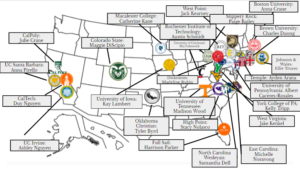Are Teachers Justified in Striking?
April 25, 2018
Across the United States, teachers have been walking out of schools in protest of low pay, poor benefits, and lack of funding among other equally significant issues. General discontent and whisperings of taking action led to a movement that has been years in the making. The movement was finally put into motion through the teacher strikes in West Virginia that took place a few months ago. Due to the walkouts, no teachers were available to teach in classes, resulting in the closing of all West Virginia schools for two weeks. It also resulted in a five percent salary increase for educators across the state. The first step taken by these West Virginia teachers has motivated teachers from other parts of the country to take a stand for what they believe they deserve. More strikes and “sickouts” have increased in number from coast to coast. In Oklahoma and Kentucky, teachers spent their spring breaks advocating for increased school funding and better benefits. Others in Arizona, although not as bold as their West Virginia counterparts, threatened strikes after being denied pay increases.
Teachers arguably hold the most important job for the future of the world. They are tasked with educating the men and women that will become the next presidents, doctors, soldiers, or even teachers. The influence they have on the lives of their students is comparable to the impact parents can make. And despite their lack of reward, teachers can often be found grading tests, quizzes, and papers well into the night. They do the best they can to ensure the success of their students. Giving them funds to better the experiences of students is a small cost to pay in exchange for the differences students will go on to make as they enter the workforce and the real world.




